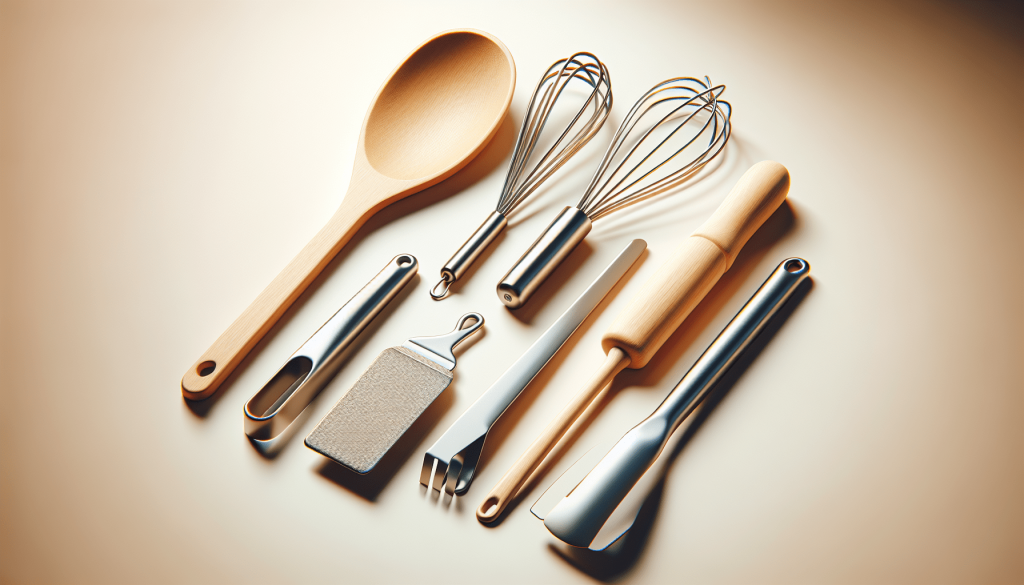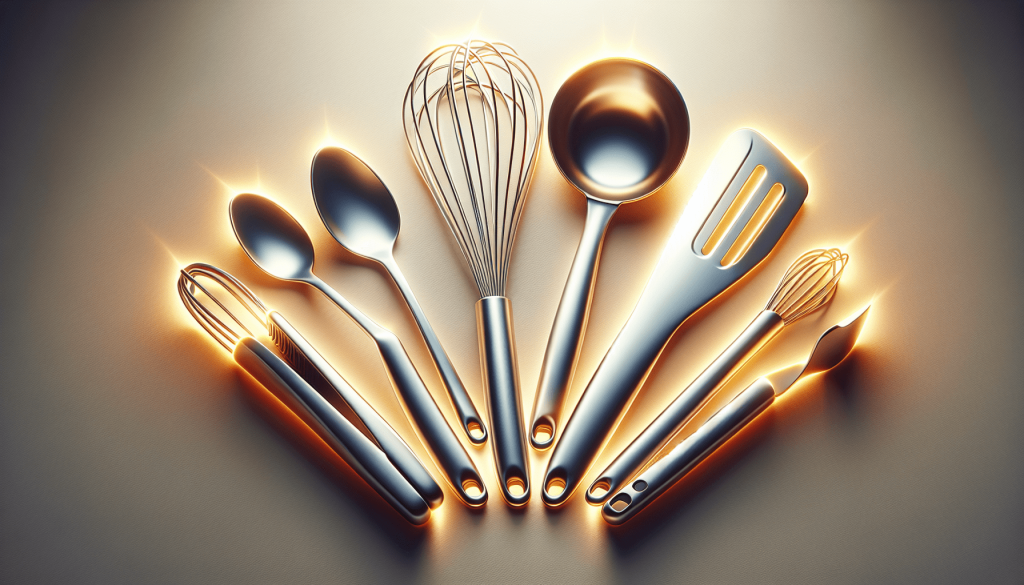If you’re an aspiring chef just starting out on your culinary journey, selecting the right cookware can be a daunting task. With a wide array of options available, it’s important to choose cookware that not only suits your cooking skills and needs but also helps you achieve delicious results. In this article, we’ll guide you through the process of selecting cookware that will make your time in the kitchen a joyous and successful experience. From understanding different materials to considering heat conductivity and maintenance, we’ve got you covered. So, let’s get started and take the first step towards creating mouthwatering dishes with the perfect cookware for a beginner chef like you.

Material
When it comes to choosing the right cookware, there are a few key factors to consider. One of the most important aspects to look at is the heat conductivity of the material. You’ll want a material that distributes heat evenly so your food cooks properly. Stainless steel and copper are both great options for good heat conductivity. Another crucial factor to consider is the reactivity of the material. It’s important to choose non-reactive materials, such as stainless steel or enamel-coated cookware, to avoid any unwanted transfer of chemicals or flavors to your food. Lastly, durability is essential. You want cookware that will last for years to come, so look for materials that are resistant to scratches, warping, and corrosion.
Types of Cookware
There are various types of cookware available, each with its own advantages and considerations. Stainless steel is a popular choice for its durability, resistance to rust and staining, and versatility. Cast iron cookware is known for its excellent heat retention and even cooking, making it perfect for dishes that require long, slow cooking. Non-stick cookware is great for low-fat cooking and easy cleanup, but it may not be as durable as other types. Copper cookware offers exceptional heat conductivity and precise temperature control, but it requires regular maintenance to prevent tarnishing. Aluminium cookware is lightweight and affordable, but it may not be as durable as other options.
Cookware Set or Individual Pieces
When deciding between a cookware set or individual pieces, there are advantages to both options. A cookware set often provides everything you’ll need for a variety of cooking tasks. It usually includes different sizes of pots and pans, along with lids and other accessories. This can be convenient and cost-effective, especially for beginner chefs who don’t already have a well-stocked kitchen. On the other hand, buying individual pieces allows you to select exactly what you need and tailor your cookware collection to your preferences. This can be useful if you already have some essential pieces and only need to add specific items to your kitchen arsenal.
Budget
Setting a budget is vital when choosing cookware. Determine how much you are willing to spend and consider it as an investment in your culinary journey. While cookware can range in price, keep in mind that opting for higher-quality materials and construction often results in a longer-lasting product. Cheaper options may be tempting, but they may not withstand regular use and could end up costing you more in the long run. It’s worth considering a long-term investment in durable, high-quality cookware that will provide you with reliable performance and enjoyment for years to come.

Size and Capacity
When it comes to choosing the size and capacity of your cookware, it’s essential to assess your cooking habits. Consider how many people you typically cook for and the types of dishes you like to prepare. Starting with versatile sizes, such as a medium-sized saucepan and a large skillet, can be a good foundation for your cookware collection. These sizes are often the most practical and versatile, allowing you to cook a variety of meals. Additionally, it’s important to consider the size of your cooktop and ensure that your chosen cookware fits comfortably and efficiently on your stove.
Handles and Lids
Comfortable handles and secure lids are crucial factors to consider when choosing cookware. You’ll want handles that provide a secure grip, even when the pans are hot and heavy. Look for handles that stay cool to the touch and are ergonomically designed for comfortable cooking. Additionally, opting for lids that fit securely on your cookware is important to lock in heat and moisture while preventing any dangerous spillovers. It’s also helpful to choose lids with built-in steam vents to release excess steam and prevent pots from boiling over.
Maintenance and Cleaning
Considering the maintenance and cleaning requirements of your cookware is essential, as it can impact your overall cooking experience. Look for options that are easy to clean and maintain. Dishwasher-safe cookware can be a time-saving feature, especially for those who prefer the convenience of machine washing. Additionally, non-stick cookware can make cleaning a breeze, as food is less likely to stick and require intense scrubbing. However, be cautious with non-stick cookware, as excessive scratching or using metal utensils can damage the coating and reduce its effectiveness.
Compatibility with Cooktop
Ensure that your chosen cookware is compatible with your cooktop. Different cooktops, such as gas, electric, induction, or ceramic, have specific requirements for cookware materials. For example, induction cooktops require cookware with magnetic properties, while ceramic cooktops can be prone to scratching and may require special care. It’s crucial to check the manufacturer’s specifications and guidelines to ensure that your cookware is suitable for your specific cooktop. This way, you can cook safely and efficiently on your chosen appliance without any compatibility issues.
Cooking Methods
Consider your preferred cooking methods when selecting cookware. Some dishes may require high heat, while others may benefit from low and slow cooking. If you enjoy a variety of cooking techniques, it’s useful to choose cookware that can accommodate them all. For example, versatile pots and pans with excellent heat retention and distribution, such as stainless steel or cast iron, can be suitable for various cooking methods. Additionally, investing in multifunctional cookware, like griddle pans or woks, can expand your culinary options and allow you to experiment with different cuisines and recipes.
Brand and Reviews
Researching reputable brands and reading customer reviews is an excellent way to gather information about the quality and performance of different cookware options. Look for brands that are known for their expertise in cookware manufacturing and have positive feedback from customers. Reputable brands often prioritize using high-quality materials, innovative designs, and excellent craftsmanship. Reading reviews can provide valuable insights into the durability, performance, and overall satisfaction of other users. By doing your homework and considering both brand reputation and customer feedback, you can make an informed decision and choose cookware that meets your expectations.
